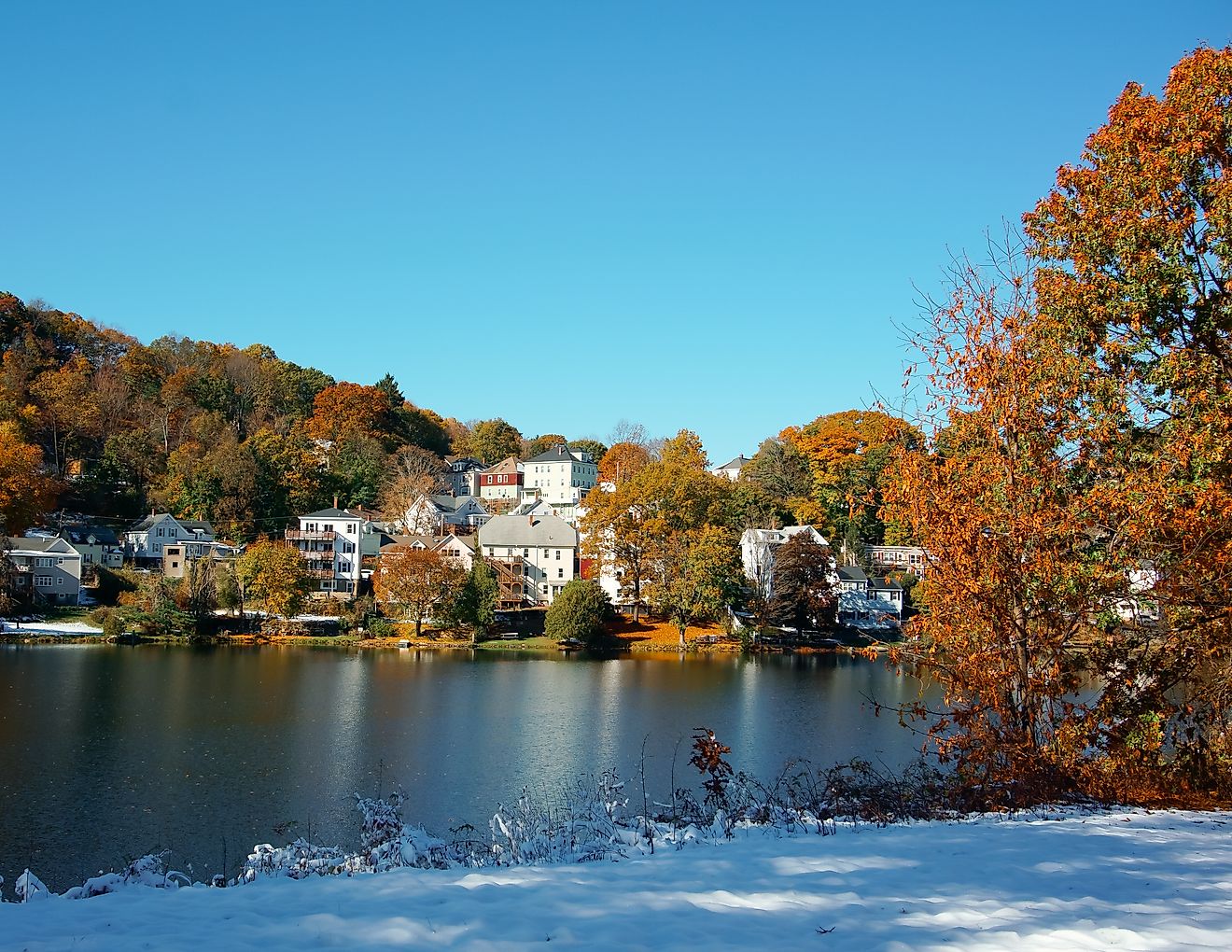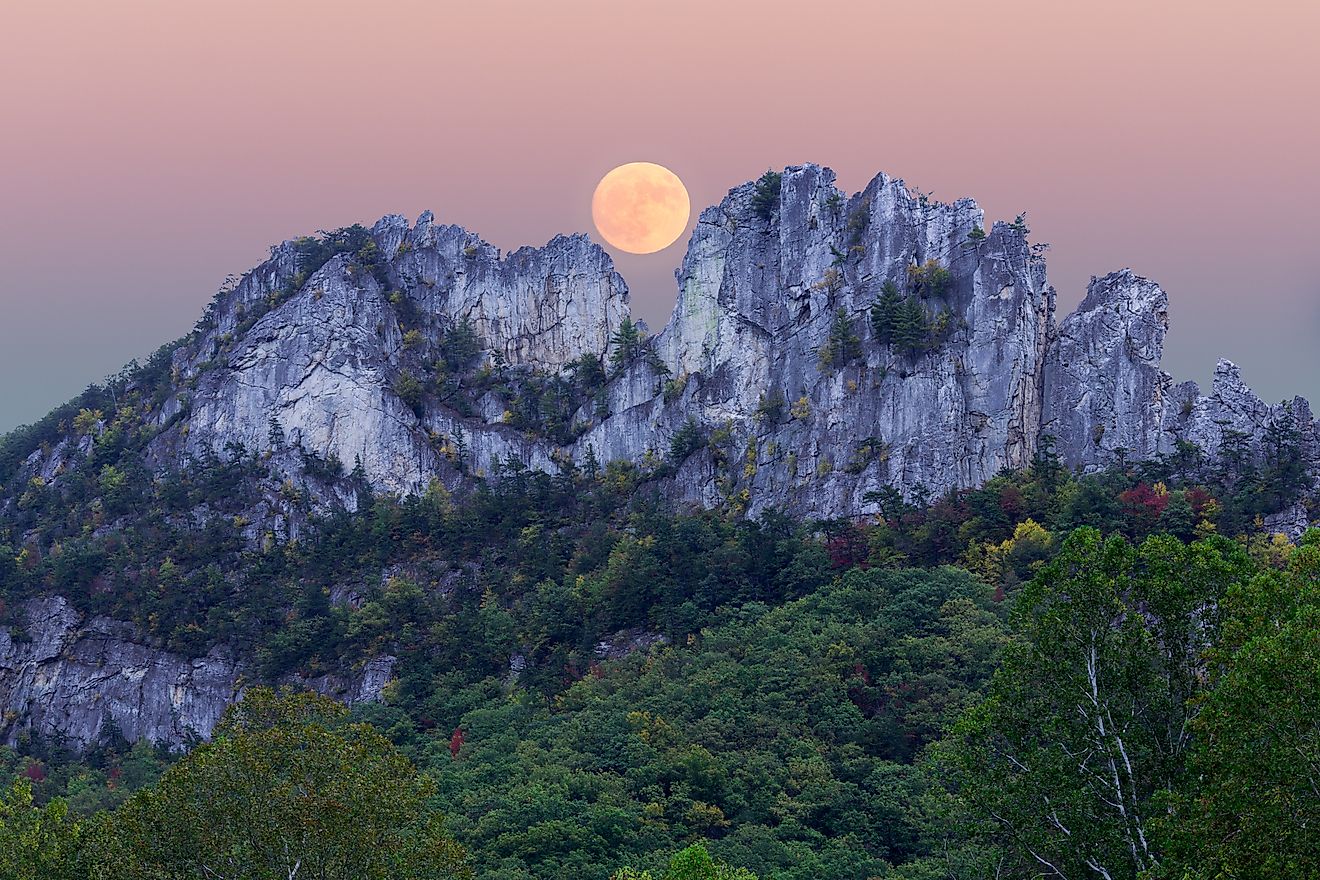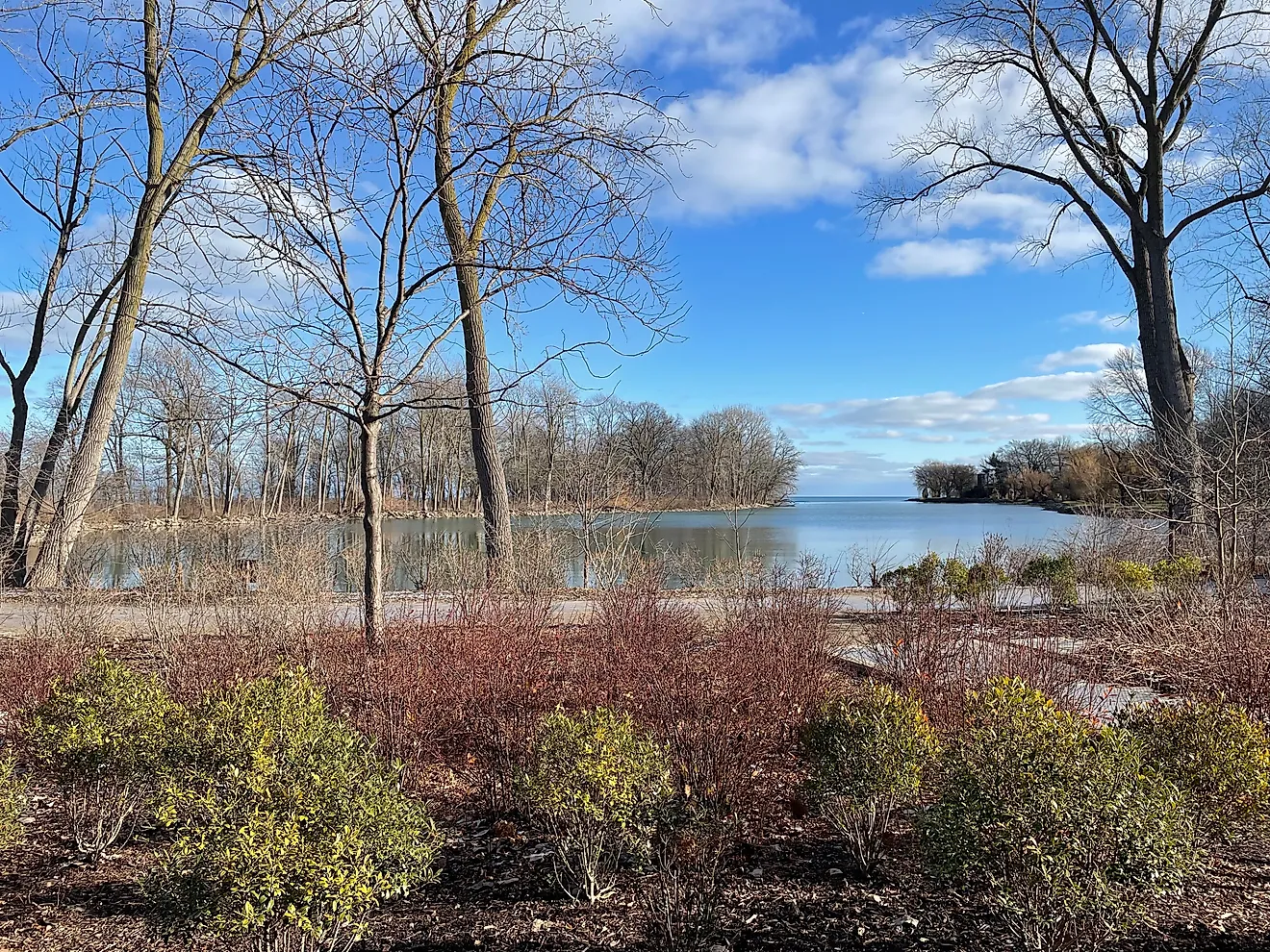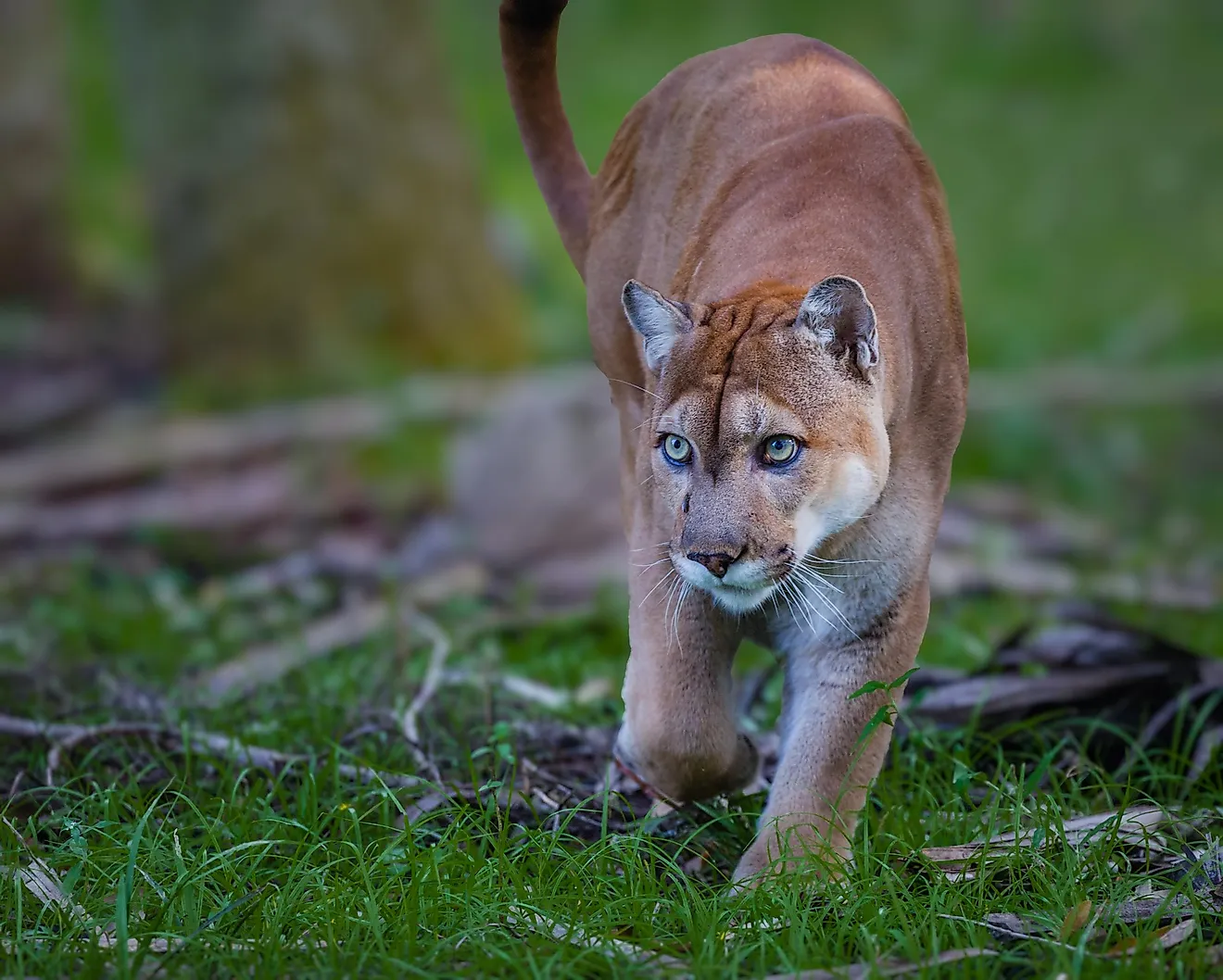
9 Best Fall Hikes In Ohio
Ohio has to be one of the best places to experience the colorful leaves during the autumn season. With 74 state parks, nearly 20 state forests, and 12 state wildlife areas, the Ohio State Park system comprises more than 170,000 acres of land. The cool air and changing leaves make autumn a beautiful time of the year in Ohio. The state even features a podium finalist on a USA Today poll for the best places to see fall foliage in the country. For those reasons and more, it is clear there are few better places to take a hike in the natural splendor of nature than Ohio.
Conkle's Hollow (Hocking Hills State Park)

The wild and picturesque Hocking Hills may be the crown jewel of Ohio's park system. Hocking Hills State Park encompasses over 2,000 across southern Ohio and is especially appealing during autumn. Besides the cornucopia of trees to enjoy, Hocking Hills features colossal sandstone outcroppings, deep-scoring gorges, and shimmering waterfalls. At two miles long, Conkle's Hollow Upper Rim Trail is one of the best ways to experience the changing leaves at Hocking Hills.
Keep in mind that one side is much more scenic than the other. Pro tip: The "good" is on the right when looking down into the gorge, one of the deepest in Ohio. We suggest hikers stick to the left side of the rim at first and save the best views for last. It is a bit of a climb to get up to the overlooks, but persevering hikers will find themselves atop an ancient sandstone ledge looking out on an ocean of colorful tree canopy.
Old Man's Cave Loop (Hocking Hills State Park)

Hocking Hills is a park so nice it is featured twice. At just over half a mile round-trip, Old Man's Cave Loop is short, sweet, and everything you could want out of a trail. In addition to being easy, this loop may be one of the most breathtaking in all of Ohio. Legend has it that a 19th-century hermit by the name of Richard Rowe once lived and was buried in the cave at the end of the trail. This urban legend may not be true, but the gorgeous scenery encountered on this hike is undeniable.
The trail is short, but it can be difficult with plenty of stairs. What Old Man's Cave Loop has in spades is scenery. Old bridges over streams, waterfalls, and caves can be found on this half-mile trek. The trail is popular all year, but especially in the fall when the hillsides explode with color. During cold snaps and in the winter, there is even a chance of seeing a frozen waterfall. Be careful, though, as the chance of slipping on the uneven terrain goes up in bad weather.
The Scout Trail (Oak Openings Preserve)

Oak Openings Preserve is found between Whitehouse and Swanton. Oak Openings Preserve is the largest of the Metroparks at a whopping 5,000 acres. The park is home to the only public treehouse village in the country, and its topography ranges from oak savanna to wetlands to vegetated sand. At Oak Openings Preserve, cacti and sand cherry bloom only yards from orchids thriving in damp swales.
The scouting trail may be a circuitous 15.5 miles long, but hikers looking for a shorter trip through the glorious Ohio wilderness are recommended to cut the trail in half and loop back using the bike path. This trail loops around the preserve's perimeter and showcases the park's beauty and varied landscapes. The extensive oak savanna in autumn is a must-see on this trail. Many bridges and boardwalks were built and maintained by Eagle Scouts, hence the trail's name. Their names are engraved on the wooden structures for hikers to see. This loop will lead hikers through oak forests, creeks, tall grass prairie swaying in the breeze, and more.
The Ledges (Cuyahoga State Park)

Ritchie Ledges is a popular trail in Cuyahoga State Park, which is found between Akron and Cleveland. Thanks to its accommodating parking lot and neutral grade, the trail is accessible for all ages and is a fine way to observe the changing leaves. The trail passes through scenic wooded areas of oak and beech trees. Sandstone cliffs overlook dropoffs down to canopies of hemlock, and there are mysterious petroglyphs on the trail dating back to the early 1900s.
The upper portion of the ledges grants spectacular views of the Cuyahoga Valley. The southwest portion of the Ledges has an overlook that offers unparalleled sunset views at any time of year. This nearly two-mile trail is one of the most scenic hikes in the Cuyahoga Valley, but be warned. The Ledges can be rocky and ungainly in a spot, so be sure you are adequately equipped for rugged terrain.
Brandywine Gorge Trail (Cuyahoga Valley National Park)

The Brandywine Gorge Trail Brandywine Falls is a nice and easy hike with a tremendous view at the end. The majestic 60-foot waterfall is one of the park's most beloved attractions, and best of all, it is visible from several trails in the park. Descending into the ravine, hikers are met with immense, moss-covered rocky outcrops and a colorful array of old-growth forests in addition to Brandywine Creek.
The Brandywine Gorge Trail is only about 1.5 miles in length, so it's a great hike for beginners. Hikers will be delighted by the deposits of sandstone and dark shale. The fall season truly comes alive on this trail with hemlock, white oak, and maple trees blazing in their autumn glory. All the trails in the park are excellent, but the falls and the surrounding trees are exceptionally pretty.
Buzzardroost Rock Trail (Edge Of Appalachia Preserve System)

Within the Edge of Appalachia Preserve System, this trail remains far and away the most popular. The 465-acre protected area got its name from the black vultures, called buzzards colloquially, which perch atop the rock at the hike's endpoint. The Buzzardroost Rock Trail leads up to the rock it was named after, greeting hikers with a small rocky outcrop perch hemmed by guardrails that offer a panorama view of the surrounding area and the greenery below. This is often called the most spectacular view in the whole state, and it is easy to see why.
The hike itself is three and a half miles and starts in a quiet prairie area, which gives way to colorful woodland and a ridge with water-carved rock down below. From the overlook, hikers look out over the slopes of the valley, which are covered with deciduous trees punctuated with patches of cedar, breaking the uniform color scheme. In the fall especially, the valley is set with outstanding colors.
Charles A. Eulett Wilderness Preserve Trail (Edge of Appalachia Preserve System)
The 20,000-acre Richard and Lucile Durrell Edge of Appalachia Preserve System is one of the most biologically diverse natural areas of the Midwest. It includes rugged woodlands, vast prairie, and miles upon miles of trails. Known as "The Edge," this collection of preserves is one of the high points of southern Ohio and is also known as an excellent place for birdwatching.
Beginning in the parking area, the trail is a 2.4-mile loop. Part of the path traces the rim of a sheer dolomite cliff. Sixty feet below lies a shaded gorge. The bedrock found along the trail is Bisher Dolomite, which is known to turn yellow as it oxidizes. Keep an eye out for the West. As the leaves begin to change color and fall, an opening appears in the canopy, which allows hikers to see the distant valley of Ohio Brush Creek. Be warned that the trail narrows at points and can be challenging.
Orange Trail (Sugarcreek Metro Park)

The Buckeye State is full of surprises, and the Orange Trail is one of the best features in the Sugarcreek Metro Park. The park is found in the town of Bellbrook in southwestern Ohio and has one of the most interesting arrangements of trees we have ever seen. The Orange Trail brings hikers to the Osage Orange Tunnel, which is right out of a fairytale.
Hikers will be treated to several interesting trees at Sugarcreek, like the Three Sisters, a trio of 500-year-old white oaks, but the Osage orange trees steal the show. The trail leads hikers beneath a canopy of these trees, which evoke the antebellum south. The trees were originally planted in the 1800s as a farm fence, but in a twist of irony, they are the reason for so many visitors throughout the year. The trail is just shy of two miles and accessible for everyone.
Stone House Loop Trail (Salt Fork State Park)

Salt Fork is Ohio's largest state park. With over 20,000 acres of land and water to explore, the park is a wonderland for outdoor enthusiasts in the state's southeast. Ohio was previously home to one of the largest hardwood forests on the planet, but industrialization and agricultural development had led to the destruction of one of the state's greatest assets. Through conservation efforts over the past few decades, a magnificent regrowth has occurred. Today, nearly 30 percent of the state has been returned to how it was: a magnificent and unspoiled sea of green.
The sentinel oaks, hickories, beeches, and chestnuts (some standing over 150 feet tall), which rose from the rich fertile soil, are proudly on display to hikers at Salt Fork State Park. The 1.7-mile Stone House Loop Trail gets its name from the sandstone dwelling built originally in 1837. Visitors to the park can see the house and the cornucopia of brightly colored leaves on this trail. Hikers can either follow parallel to the lake or climb up to the ridge section of the trail. The ridge portion has some steep climbs and descents, earning it an intermediate difficulty rating.
Ohio has a richness of natural wonder, which is hard to express. Sandstone bluffs meet the open prairie, giving way to inland green seas. The number of trees in Ohio makes this Midwestern state an absolute delight as the leaves begin to change. If you find yourself in the Buckeye State this autumn, be sure to pack your hiking boots. The colorful displays overhead are nothing short of amazing.











